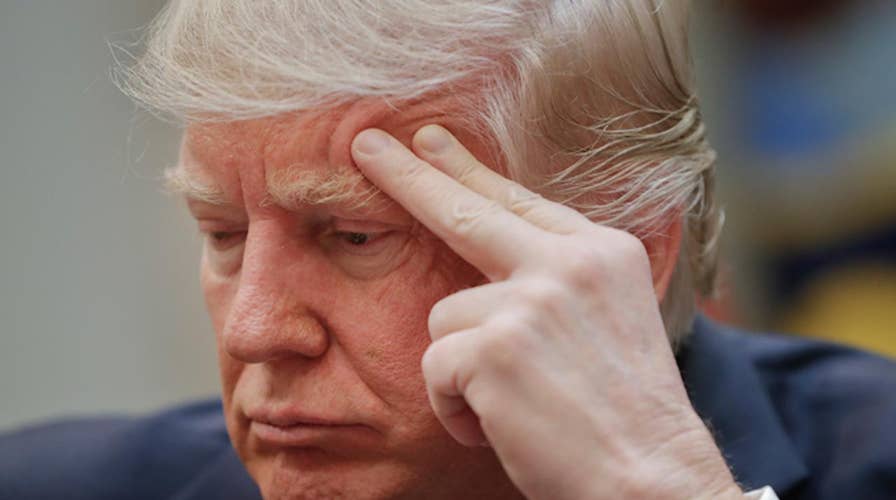Trump budget plan opens new fight among Republicans
Strategy Room: Brad Bauman and Brian Morgenstern on the White House's strategy on Capitol Hill
Insisting it is their moral responsibility, more than 100 American Christian leaders are urging Congress to reject proposed steep budget cuts to foreign aid.
“795 million people still go to bed hungry every night. Matthew 25 tells us when we serve the least of these, we are serving the Lord," the religious leaders said in a new letter to congressional leadership. "We are grateful for America’s global development and diplomacy programs that have been instrumental in saving lives, safeguarding religious liberties, and keeping America safe and secure.”
The letter came as President Trump released his budget proposal for fiscal 2018. The plan seeks significant military increases, offset by cuts elsewhere, especially at the State Department and the U.S. Agency for International Development. That total budget is targeted for a 28 percent, or $10 billion, reduction.
In a statement accompanying his budget blueprint, Trump called for “deep cuts to foreign aid,” as part of a plan to “prioritize the security and well-being of Americans, and to ask the rest of the world to step up and pay its fair share.”
The signatories on the letter objecting to such cuts include Timothy Cardinal Dolan, the Archbishop of New York; Dr. Samuel Rodriguez, the president of the National Hispanic Christian Leadership Conference; and dozens of other self-described Christian leaders, and performers.
“America is blessed with fertile land, abundant natural resources, a strong economy, and faithful citizens who value religious freedom,” they wrote. “But beyond our borders, many countries experience unparalleled suffering and loss of life due to extreme poverty, disease, natural disasters, and conflict.”
They claimed the U.S. foreign affairs budget, at about 1 percent of federal spending, has already built “peaceful, productive societies that do not turn to violence or terrorism. “
Supporters of the budget cuts argue with a national debt of about $20 trillion, the federal government should focus its resources on domestic priorities.
Last month, when asked whether a one-year cut to the State Department and international affairs budget of more than a third could pass Congress, Senate Majority Leader Mitch McConnell said “probably not.”
The president’s budget is a proposal to Congress. Lawmakers decide how much to spend and what to spend it on. The White House can then approve or veto Congress’ spending plans.












































